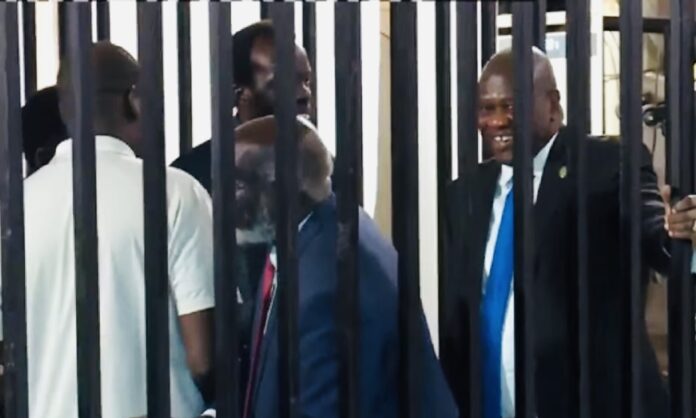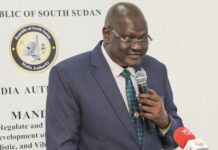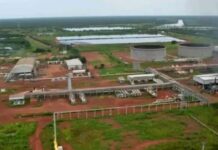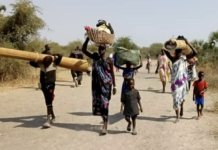The trial of suspended First Vice President Dr. Riek Machar and seven senior SPLM-IO officials has been adjourned to Wednesday, following the defense team’s submission of a written motion challenging the jurisdiction and legality of the special tribunal overseeing the case.
The adjournment came after Justice James Alala Deng, the presiding judge, confirmed that the defense, led by Adv. Dr. Geri Raymondo Legge, had filed a formal objection questioning the constitutional and legal basis of the court.
The judge granted the request to allow the court sufficient time to review the submission before the next session.
“The court will reconvene on Wednesday, September 24, 2025, at 9:00 a.m. to consider the motion,” announced Justice Alala.
The defense maintains that the tribunal lacks the jurisdictional authority to try a sitting or suspended First Vice President, citing provisions of the Transitional Constitution and the Revitalized Peace Agreement (R-ARCSS), which they argue limit such proceedings to the Supreme Court or a Hybrid Court mechanism outlined in Chapter V of the agreement.
In a notable moment during the hearing, Justice Alala reaffirmed the court’s commitment to openness, addressing recent criticism regarding restricted media access during previous sessions.
“This is a public court. The public should be allowed to attend, and the media must be given access to cover and report on the proceedings,” said Justice Alala. “Journalists know their role and must be free to fulfill it.”
His remarks followed public outcry and statements from media watchdogs, after independent journalists were barred from attending the opening session earlier this week, raising concerns about transparency.
The ongoing trial of Dr. Machar and his co-accused—who include high-ranking SPLM-IO officials—continues to be one of the most closely watched political and legal cases in South Sudan’s post-conflict era.
The case stems from violent incidents that occurred earlier this year in Nasir, which the government alleges were orchestrated by elements of the SPLM-IO. The defense denies all charges, calling them politically motivated.
As the legal battle over the court’s legitimacy intensifies, analysts say the outcome could have broader implications for rule of law, transitional justice, and the peace process in South Sudan.





